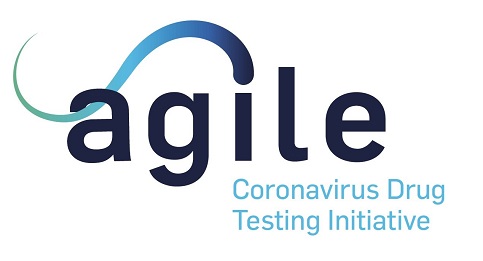
AGILE is a ground-breaking clinical trial platform which aims to fast-track potential new COVID-19 treatments through early phase clinical trials and is testing multiple potential treatments in parallel. This means that new treatments can go through the important testing stages in a matter of months rather than years, while maintaining a high level of safety at all times.
We spoke to a patient who has taken part in one of the AGILE trials, and a research nurse working on another of the trials, to find out how they feel about being part of this ground-breaking research.
.jpg?csf=1&web=1&e=t6Dcp6)
A patient's experience
Cathy Barrow, 56, from Liverpool has been taking part in the AGILE trial of the oral antiviral pill molnupiravir after she tested positive for COVID-19 at the start of August, despite having had both her vaccinations.
She’s been telling us about contracting COVID, and her experience of being part of AGILE.
“At the start of the pandemic I was terrified,” says Cathy. “I suffer with Hashimoto disease which is a thyroid auto-immune disease, and as very little was known about COVID-19 it was frightening. But I once I’d had the double jab, I felt a lot more confident.”
But after her daughter came down with COVID-19, Cathy decided she needed to get tested.
“Although we had no symptoms whatsoever, both my husband and I had been spending time with our daughter and granddaughter, so we did a lateral flow test and there was a very faint line. We then went to get a PCR test which came back positive.
“Then I started getting a runny and blocked nose and a headache, and a couple of days later I felt a bit lethargic, and my taste and smell went. But luckily the symptoms were not too serious. It was just like an inconvenient head-cold.”
Just after testing positive, Cathy was called by a doctor from the AGILE clinical team in Liverpool to ask if she would be interested in taking part in the trial.
“By this time, we were crawling the walls in isolation, so any excuse to get out of the door was fine by me! I told the doctor that my husband had also tested positive, and he told me we could both take part.
“We were told that the trial would involve some tests such as an ECG, taking some swabs and some blood, checking our weight and height, and filling in some questionnaires. It sounded like a bit of an MOT really and I was quite happy with that. Then we would be given some tablets to take and would have to come back for a couple more hospital visits.”
Cathy, who works as a train guard for Mersey Rail, says being involved in research into a potential new COVID-19 treatment is exciting.
“It feels like you’re giving something back to be honest. Because if it wasn’t for people who took part in the trials for the vaccines, we wouldn’t all be vaccinated. They trialled that to help me, so why wouldn’t I trial a treatment that could help someone else?"
Cathy and her husband, Dave, had their last hospital visit for the trial at the start of September.
“I feel fine now. My COVID illness was thankfully relatively short and as I’d had the vaccines, I think it meant my symptoms were a lot less severe than they could have been. And maybe the trial treatment I was on had an effect too. Of course, I don’t know at this stage whether I had the real treatment or the placebo though, because we don’t get told.”
Cathy is now about to embark on a new career as she begins training to be a train driver. And she says being part of the trial has been a positive experience.
“I would say to other people who are approached to take part in one of the AGILE trials, or any COVID-19 trial, that if you can take part and you feel comfortable doing it, then go for it.
“Hopefully this trial will have a positive outcome and the team will find what they are looking for. It feels good to be a part of something positive in relation to COVID-19.”
.jpg?csf=1&web=1&e=l3XkOd)